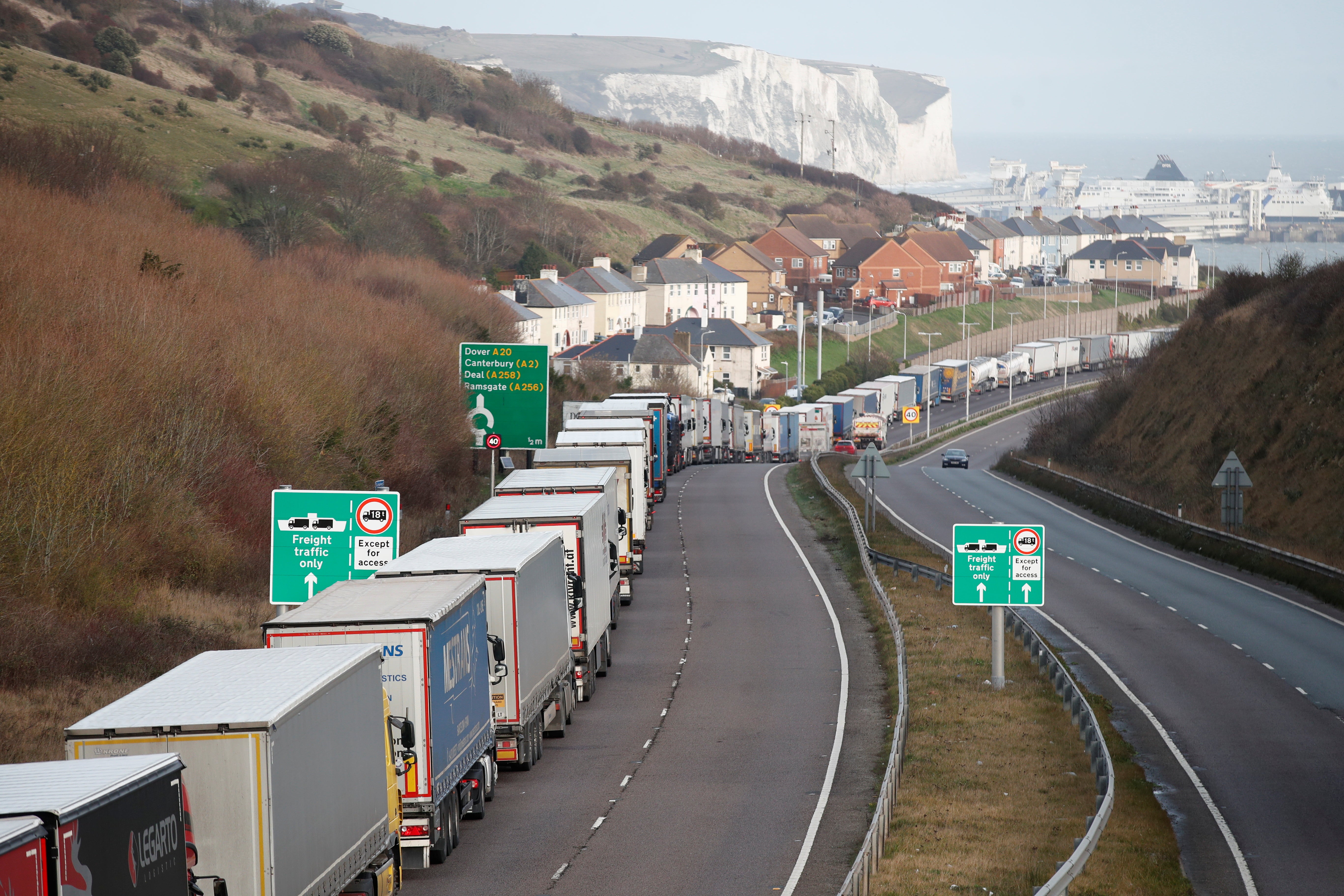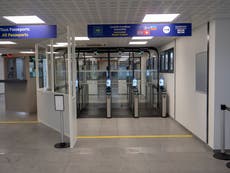Delays in Brexit preparations risk ‘worst possible start’ to 2021, report warns
‘Significant concerns’ remain with just seven working days to go

Government delay in preparing Britain for the transition to Brexit risks “the worst possible start” to the new year for UK businesses and citizens, a House of Commons report has warned.
With just seven working days left until the UK leaves the EU’s single market and customs union, there are “significant concerns” about how border arrangements will work, said the report by a cross-party committee of MPs.
With no certainty over whether the UK will strike a free trade agreement with Brussels in the final days of 2020, the Committee on the Future Relationship with the EU warned of traffic disruption at ports, more red tape and extra costs for business.
And it said it was “critical” that the government act swiftly and robustly with contingency plans to resolve problems likely to emerge as soon as the transition to the new arrangements takes place at 11pm on 31 December.
The report said that key decisions on border operations had been taken “very late”, including the announcement of grants under the Port Infrastructure Fund – which this week saw Dover awarded £33,000 for new customs facilities when it had requested £33m – and the choice of location for lorry parks to deal with expected tailbacks of trucks at the UK’s second-busiest roll-on/roll-off port Holyhead.
And it said that new HM Revenue and Customs IT systems were being rolled out “with very little time remaining”, meaning that not all businesses and traders will be able to update systems or train staff in time.
The committee heard evidence that the estimated 50,000 private sector customs agents needed to deal with additional red tape caused by Brexit will not be fully recruited and trained by the end of the year.
Its report warned: “Outside the single market and customs union, businesses and traders will be reliant on customs intermediaries to help them get their paperwork right. It will be impossible to comply with the requirements on plant and animal health, and food and feed safety without the vets and other professionals who are needed to carry out checks and certify goods.
“We are very concerned that any delays that arise because we have not got the right people in the right place at the right time will make it harder for UK businesses to trade with our European neighbours.”
Results from the government’s campaign to urge businesses to prepare for the coming changes were “patchy at best”, the report warned.
Meanwhile, the UK is set to lose access to EU law enforcement databases like the Schengen Information System II, and fall-back systems to take their place are likely to be “slower and more cumbersome”, while a replacement for the European Arrest Warrant is unlikely to be ready by 1 January, the report found.
Committee chair Hilary Benn said: “With just seven working days until the end of the transition period, significant concerns remain.
“The government still cannot provide businesses, traders and citizens with certainty about what will happen in all the areas affected by the negotiations, but as we leave the rules of the single market and the customs union, firms exporting to the EU will face more red tape, unfamiliar forms and extra costs from 1 January whatever happens.
“Some progress has been made. We welcome the agreement on the implementation of the Northern Ireland Protocol, for example.
“But we are worried about the consequences of trucks not having the right paperwork, traffic disruption around ports, and the UK’s security being affected by loss of access to EU law enforcement databases.
“It is also disappointing that an agreement on the Northern Ireland Protocol could not be reached before now and that some issues have been deferred.
“At this late stage, the government must be ready to implement contingency plans where necessary to mitigate the effects of any disruption. Failure to do so would mean the worst possible start to the new year for many people and businesses who are already experiencing the toughest of times.”
A government spokesperson said: “We’re pleased that the committee has welcomed our pragmatic and flexible approach to staged border controls, as well as our detailed Border Operating Model and landmark agreement on the Northern Ireland Protocol, which provides stability and security for Northern Ireland.
"Government is also investing £705 million in jobs, technology and infrastructure at the border and providing £84 million in grants to boost the customs intermediaries sector.
"With just a few days to go until the UK’s new start on 1 January, it’s vital that businesses and citizens make their final preparations now."




Join our commenting forum
Join thought-provoking conversations, follow other Independent readers and see their replies
Comments